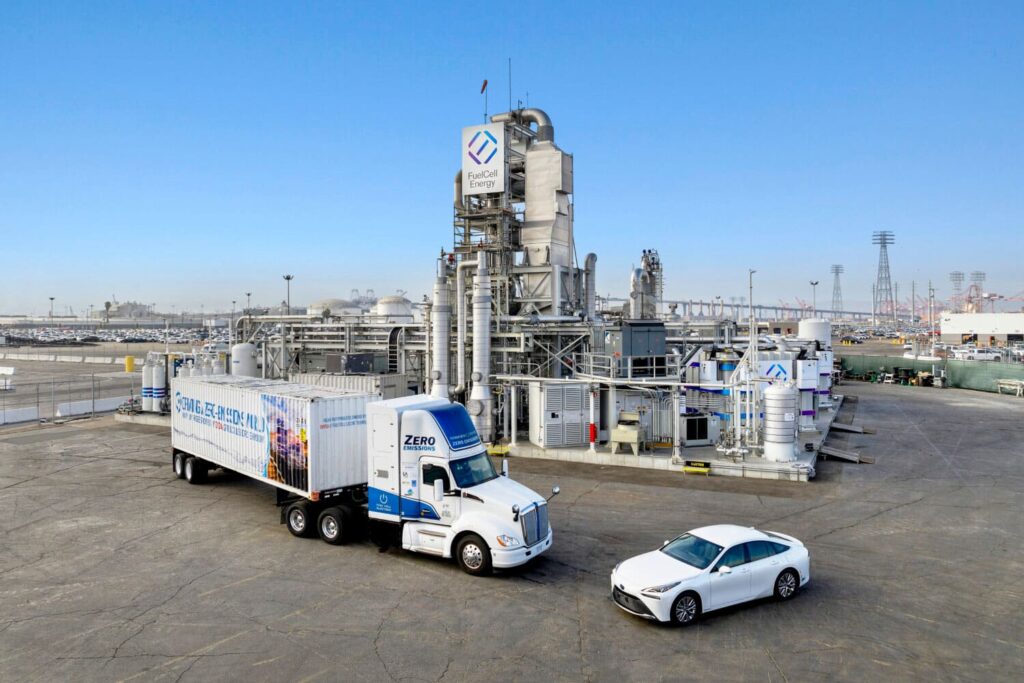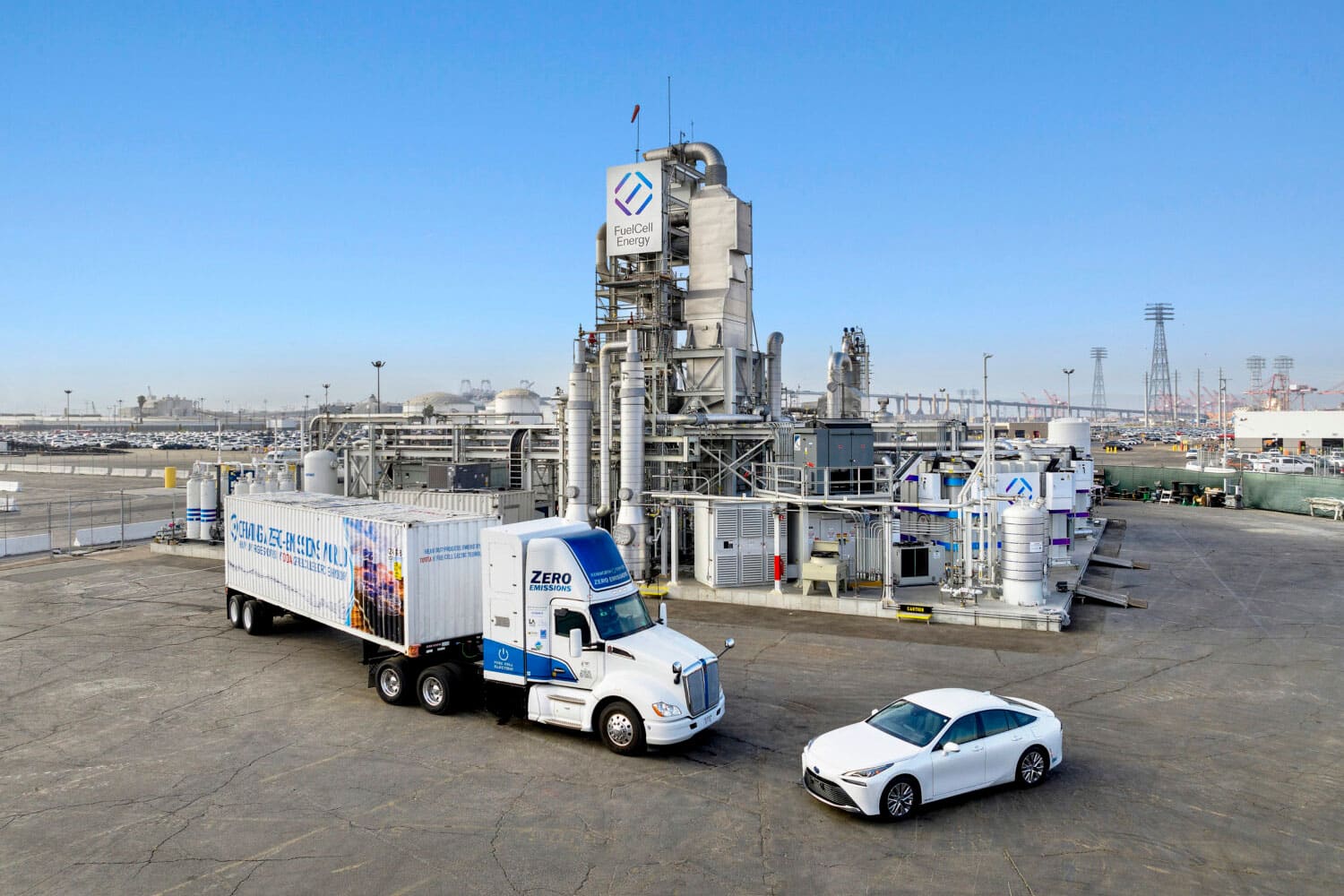
FuelCell Energy and Toyota Complete World’s First Tri-gen System for Sustainable Energy Production
FuelCell Energy and Toyota Motor North America have achieved a historic milestone with the completion of the world’s first Tri-gen system at Toyota’s Port of Long Beach operations. This innovative system produces renewable electricity, hydrogen, and water from recycled biogas, signifying a significant leap forward in sustainable energy production and a reduction in carbon emissions.
Chris Reynolds, Chief Administrative Officer at Toyota, praised this achievement, stating, “By utilizing only renewable hydrogen and electricity production, TLS Long Beach will blaze a trail for our company.” He also emphasized that this real-world example can be replicated in many parts of the world, offering a glimpse into the future of sustainable energy.
FuelCell Energy’s innovative fuel cell technology is at the heart of the Tri-gen system. This technology relies on an electrochemical process to convert directed renewable biogas into electricity, hydrogen, and usable water. What sets it apart is its high efficiency and combustion-free process, virtually eliminating air pollutants.
The Tri-gen system harnesses renewable biogas derived from organic waste, delivered to the site through pipelines. The biogas, containing methane, is then converted to hydrogen in a fuel cell stack. It undergoes humidification to optimize the water-to-methane ratio for efficient hydrogen production in the fuel cell stack.
Following this process, the gas is heated for steam-reforming, turning wet gas into hydrogen while generating heat and water as byproducts of the electrochemical power generation process. The direct current (DC) generated is then converted to alternating current (AC) for use in the power grid or nearby facilities.
The gas exiting the fuel cell contains hydrogen and water vapor, and a cooling process turns the vapor into liquid water, which is removed. The water is recycled by the fuel cell, and excess water is directed to Toyota’s car washing stations. The purified hydrogen is delivered to the hydrogen station for use in fueling zero-emission vehicles.
Beyond providing electricity and hydrogen, the high operating temperature of fuel cell systems generates usable thermal waste heat, versatile for applications like metal processing, glass production, petrochemicals, and material handling.
The Tri-gen system produces approximately 2.3 MW of renewable electricity, up to 1,200 kg of hydrogen per day, and 1,400 gallons of water daily. The renewable electricity will support TLS Long Beach’s port operations, where around 200,000 new Toyota and Lexus vehicles are processed annually.
Additionally, renewable hydrogen from Tri-gen will fuel TLS Long Beach’s incoming light-duty fuel cell electric vehicle (FCEV) Mirai and supply hydrogen to a nearby heavy-duty hydrogen refueling station for TLS logistics and drayage operations at the port, with production adaptable to operational needs.
Tri-gen’s carbon-neutral products are expected to reduce over 9,000 tons of carbon emissions from the power grid annually, as well as more than six tons of grid nitric oxide emissions, harmful to people and the environment. Furthermore, it has the potential to reduce diesel consumption by over 420,000 gallons per year through the use of hydrogen-powered fuel cell trucks in port operations.
Mario Cordero, CEO of the Port of Long Beach, highlighted the importance of renewable hydrogen, stating that it plays a critical role in transitioning equipment like locomotives, harbor craft, cargo-handling equipment, and trucks to zero emissions.
Excess electricity not used by TLS will be supplied to the local utility, Southern California Edison, under the California Bioenergy Market Adjustment Tariff (BioMAT) program, contributing a renewable, resilient, and affordable baseload electric generation resource to the electric grid.
The Tri-gen system underscores FuelCell Energy’s capacity to scale hydrogen-powered fuel cell technology, increasingly vital in global efforts to reduce carbon emissions. This landmark achievement demonstrates the potential for renewable hydrogen to transform various industries and promote a greener, more sustainable future.
Owned and operated by FuelCell Energy, the Tri-gen system is set to supply its products to Toyota under a 20-year purchase agreement, emphasizing a long-term commitment to sustainable energy solutions.
This groundbreaking project showcases the power of collaboration between industry leaders to drive innovation and make significant strides toward a more environmentally friendly and sustainable future.

